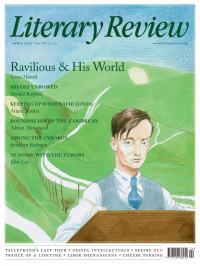Andrew Irwin
Village People
Reservoir 13
By Jon McGregor
Fourth Estate 327pp £14.99
Jon McGregor’s Reservoir 13 is a portrait of a whole village. It’s an attempt not just to document the lives of those who reside in this rural community, but also to capture its ephemeral networks of interaction and interdependence, along with the constant presence of history and nature.
There is no single, compelling plotline; instead the book employs a strategy typical of McGregor’s writing, building its story from disparate threads to examine the minutiae of everyday dramas. McGregor introduces characters with little exposition or explanation – the sprawling cast simply acts, and the onus falls on the reader to distinguish between them and locate them in village life. Su and Austin Cooper are expecting twins; Martin Fowler’s butcher’s shop is about to go out of business; the teenagers James, Liam, Deepak, Sophie and Lynsey are beginning to rebel, drinking wine in the cricket pavilion. And yet, despite the normality and subtlety of the action, the novel begins with, and is framed by, a momentous event. A thirteen-year-old girl, Rebecca Shaw, visiting the village with her parents, goes missing while walking in the hills. Weeks, then months, pass and she remains unfound. The villagers return to their lives but still, years later, the girl is missing. Characters depart and new ones are introduced. Teenagers grow up and leave for university; some return. Babies are born and an old man dies. Facts relating to the investigation emerge over the years, but nothing coheres into explanation.
This is a world regulated by the changing of the seasons and annual traditions – the dressing of wells, the exploits of Mischief Night, the thrill of New Year and the community pantomime. Both the novel’s structure and its language work to reinforce its cyclical narrative. In echo

Sign Up to our newsletter
Receive free articles, highlights from the archive, news, details of prizes, and much more.@Lit_Review
Follow Literary Review on Twitter
Twitter Feed
Margaret Atwood has become a cultural weathervane, blamed for predicting dystopia and celebrated for resisting it. Yet her ‘memoir of sorts’ reveals a more complicated, playful figure.
@sophieolive introduces us to a young Peggy.
Sophie Oliver - Ms Fixit’s Characteristics
Sophie Oliver: Ms Fixit’s Characteristics - Book of Lives: A Memoir of Sorts by Margaret Atwood
literaryreview.co.uk
For a writer so ubiquitous, George Orwell remains curiously elusive. His voice is lost, his image scarce; all that survives is the prose, and the interpretations built upon it.
@Dorianlynskey wonders what is to be done.
Dorian Lynskey - Doublethink & Doubt
Dorian Lynskey: Doublethink & Doubt - Orwell: 2+2=5 by Raoul Peck (dir); George Orwell: Life and Legacy by Robert Colls
literaryreview.co.uk
The court of Henry VIII is easy to envision thanks to Hans Holbein the Younger’s portraits: the bearded king, Anne of Cleves in red and gold, Thomas Cromwell demure in black.
Peter Marshall paints a picture of the artist himself.
Peter Marshall - Varnish & Virtue
Peter Marshall: Varnish & Virtue - Holbein: Renaissance Master by Elizabeth Goldring
literaryreview.co.uk